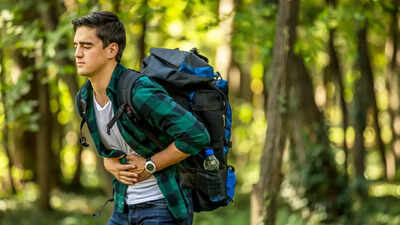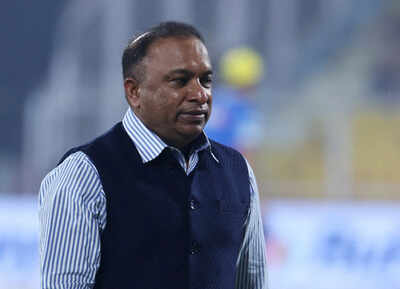
Monsoon travel has a unique charm; lush green landscapes, cascading waterfalls, and cool breezes offer a refreshing break from summer heat. However, the rainy season also brings a higher risk of food- and water-borne illnesses. Damp conditions and fluctuating temperatures create the perfect environment for bacteria to thrive, increasing the likelihood of food poisoning. A bout of illness can ruin an otherwise enjoyable trip. If you’re planning a getaway this monsoon, following a few simple precautions can help keep you healthy and make your journey more enjoyable. Here are seven practical ways to avoid food poisoning while travelling.
Essential tips to protect your health while travelling in monsoon
Be cautious with street food
Street food is an integral part of the travel experience, offering unique tastes and local flavours. But during the monsoon, it’s important to exercise caution. Opt for busy stalls with a high turnover, as fresh preparation is more likely and reduces the risk of bacterial growth. Observe how the food is prepared and served, and choose items cooked in front of you with minimal hand contact. Avoid dishes that have been sitting out or exposed to moisture for long periods. By picking clean, hygienic street food, you can enjoy local delicacies without compromising your health.
Stick to fresh, hot meals
Eating freshly prepared, steaming hot meals is one of the safest ways to protect yourself during monsoon travel. Heat kills most harmful bacteria and viruses, so freshly cooked food is far less likely to cause illness than cold or pre-cooked meals that have been left at room temperature. Avoid buffet-style setups or uncovered dishes, as exposure to dust, flies, or humid air can lead to contamination. When ordering at restaurants or local eateries, choose meals that have been cooked to order and served hot. The US Centers for Disease Control and Prevention (CDC) advises travelers to eat only thoroughly cooked foods and to avoid foods that may have been contaminated during preparation or storage. A simple step like this goes a long way in preventing food-borne infections during travel.
Avoid raw and cut fruits from outside vendors
Sliced fruits from roadside vendors or small stalls may seem convenient, but they often carry a high risk of contamination. They might be handled with unclean hands or washed in polluted water, making them unsafe to consume. Carry your own fruits and wash them thoroughly with clean, safe water before eating. Fruits with thick peels, like bananas, oranges, and pomegranates, are safer options as their skins protect against germs. By choosing fruits carefully, you can enjoy a healthy snack without worrying about food poisoning during your monsoon travels.
Drink bottled or purified water only
Water is a common source of infection during the rainy season, and contaminated water can quickly lead to food poisoning. Always choose sealed bottled water from reputable brands. In remote locations, carry a portable water purifier or boil water before drinking. Avoid ice in beverages unless you are certain it was made from safe, purified water. Staying well-hydrated with safe water not only prevents dehydration but also significantly reduces the risk of water-borne illnesses during your journey.
Say no to leafy salads and raw vegetables outside
Raw vegetables and salads may be nutritious, but during monsoon travel, they pose a higher risk of contamination. Vegetables washed in untreated water can carry bacteria or parasites that cause stomach upsets. It’s safer to consume cooked vegetables, which are less likely to harbour harmful germs. If you’re staying somewhere with access to a clean kitchen, you can prepare your own salad using filtered water. Until then, sticking to cooked meals will minimise the risk of food poisoning while still providing necessary nutrients.
Keep hand sanitisers and wet wipes handy
Clean hands are one of the most effective defences against food-borne illness. During monsoon travel, surfaces may be muddy, wet, or contaminated, increasing the chance of picking up germs. Always wash your hands with soap and water before eating when possible. When access to water is limited, use hand sanitisers or wet wipes to clean your hands thoroughly. This simple habit significantly lowers the risk of ingesting harmful bacteria and helps maintain hygiene, especially when enjoying street food or outdoor meals.
Listen to your body
Your body often signals when something isn’t right. Symptoms like stomach cramps, nausea, or diarrhoea should never be ignored. Resting, staying hydrated with ORS or electrolyte drinks, and temporarily avoiding solid foods can help the body recover. Carry a basic travel medical kit with anti-diarrhoeal tablets and consult a doctor if symptoms persist or worsen. Paying attention to these early warning signs allows you to address potential food-borne illnesses promptly, reducing discomfort and preventing complications during your trip.Travelling during the monsoon can be refreshing, scenic, and memorable, but it requires extra attention to food and water safety. By sticking to fresh, hot meals, being cautious with street food; avoiding risky raw items; drinking safe water; keeping hands clean and listening to your body, you can enjoy the season without falling ill. A little preparation goes a long way in ensuring a smooth, healthy, and enjoyable journey. With these seven practical tips, you can savour the beauty of the rain while keeping food poisoning at bay.Disclaimer: This article is for general informational purposes only and is not a substitute for professional medical advice, diagnosis, or treatment. Always seek the guidance of a qualified healthcare provider regarding any medical condition or lifestyle change.Also Read: 7 Side effects of sleep medication you should know to prevent serious health risks






